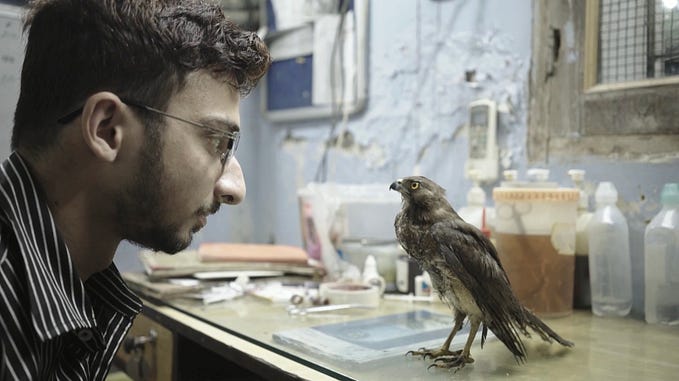2021 An Art Exhibit Part VI
Back at it again with the non-Sundance bullshit. Here’s what I’ve been reading, playing, watching, etc.
Here’s Part I.
Here’s Part II.
Here’s Part III.
Here’s Part IV.
Here’s Part V.
—
100 Boyfriends (Brontez Purnell, 2021)
Picked this up because I dug the cover and was very into the concept of short stories revolving around a number of queer interactions, labeled “boyfriends” less as any official status and more as though exploring the concept of attachment to individuals that we may or may not develop real attachments to. In the very sexual queer world we navigate, there are all sorts of hook-ups. Those interactions, anonymous and not, sexual and not, become sort of commonplace after a while. Describing them in any capacity can be fun at first, but, inevitably, the stories grow weary and tiresome. You can only drop a load in someone’s asshole in a public bathroom so many times before the thrill all but disappears and we have to move onto something new. 100 Boyfriends feels like trying to sit down and recalling all of these past encounters, the interesting ones as much as the boring ones, in order to make a list for a therapist.
Purnell has described his approach as ‘chaotic’, stating that ‘it’s actually closer to the way humans move through life’ and noting that ‘linear time is a scam’, but what becomes grating about the book is that there’s little variety or interest in examining any of these messy stories beneath the surface. His characters all start to blend together, their personalities almost entirely interchangeable and told through the same voice, the only way to tell them apart being those brief instances where their names are spoken aloud or when the authorial voice changes from first person to third. There are plenty of individual passages and chapters that drew me in in the way they explored relationships that are arguably toxic but meaningful to their respective protagonists. Frankly, a lot of the writing feels like the kind of text messages you’d send your friend late at night while high and/or after a hook-up; sort of ponderous in a post-coital way that doesn’t really amount to anything more than a recollection of sometimes vulnerable and sometimes faux-shocking details.
By no means is 100 Boyfriends a bad book, but it’s certainly a work that thinks it’s a lot more aesthetically unique (whether that’s its stylistic messiness or catty sense of humor or brash sexuality, all of which are kind of standard and almost boring to anyone who has navigated the same bathhouses and Twitter feeds as the writer) than it really is.

Kirby: Nightmare in Dream Land (2002)
Game cute. Game simple. Game short. Game fun. Kirby jump and suck a lot. Kracko annoying as shit and maybe the only boss that really gave me trouble.

Drakengard 3 (Yoko Taro, 2014)
Holy shit, what a fundamentally broken game. This is maybe one of the most repetitive things I’ve ever had to play through; just an onslaught of enemies running toward you that requires you to hack and slash them continuously to proceed. Nothing less, nothing more. Blood splatters all over the screen with each hit and characters yell out all sorts of vulgarities, but what starts off as fun inevitably becomes exhausting. The frame rate is abysmal and consistently freezes and forces the player into awkward corners and camera angles that are sometimes impossible to navigate. Think of it like a Warriors game, but without any real budget.
But it is also a fantastic game on a narrative level. Yoko Taro makes some leaps to weave together the worlds of Drakengard and Nier in a way that is honestly very exciting. Based on the first branch alone, I was hooked in and wondering what would result from what originally seemed like a plain old vengeance tale. Later, watching the remaining branches via YouTube (as I could not physically make myself go through four more branches of actual gameplay), I couldn’t believe what was unfolding. Offbeat time-travel, androids, and dark magical flowers being blended into a seemingly straight-forward tale of swords, tits, and dragons & an abundance of horniness being set aside for sincere emotional connection.

Willy’s Wonderland (Kevin Lewis, 2021)
Pretty good! It kind of nails the sort of gritty 90/00s game (and goofy action/horror of the time, Robert Rodriguez-ish) aesthetic — complete with silent protagonist, plucky sidekick, expendable NPCs, and power-up drinks — that offered nothing but frivolous delights. Full-on video game logic throughout. It’s all about repetition: embarking on a mission with a boss fight each time, with each break providing a chance for a mini game (pinball), recovery (duct tape), save point (shirt change), and cut scenes of nothing but nonsensical exposition.
Has a better understanding of how to be successfully camp(y) than most contemporary horror films do — sincerely laughed out loud more than once. Cage is delightful in a no line role, but really the MVP here is Beth Grant. Flat out unfair of critics to compare this to recent works out of its caliber. Cosmatos, Stanley, Sono, etc, have far loftier ambitions and skills as filmmakers, but there’s a lot of fun to be had as a horror movie with no greater ambitions than having a very bloody body count.

The Lady and the Dale (Zackary Drucker & Nick Cammilleri, 2021)
Trans documentaries often find themselves asking the same question: What is positive representation? “There’s this hunger to see a life that you can aspire to, to emulate,” explains trans historian Susan Stryker in the new HBO docuseries The Lady and the Dale. “Liz Carmichael is not an easy person for us to think of as a role model,” she adds, “But at a deeper level, there’s something that’s really compelling about Liz’s story.” And how! Directors Nick Cammilleri and Zackary Drucker directly challenge the idea that “uplifting” trans narratives are the most absorbing ones. Instead, the most interesting trans stories are often about folks who spend their lives challenging the systems that keep them down. Geraldine Elizabeth “Liz” Carmichael had the kind of story that Ryan Murphy probably wishes he could have turned into an exploitative miniseries. She counterfeited money, faked a car accident, illegally sold car stocks, lied about degrees, moved her family from home to home in the middle of the night, jumped bail … the rap sheet goes on.
Read more of what I wrote over at Hyperallergic

Real Housewives of Miami, Seasons 1–2
Honestly the worst Housewives franchise I’ve watched so far and I wrote about it here
Malcolm & Marie (Sam Levinson, 2021)
Not one single person read Malcolm & Marie and said, “Buddy please you gotta add a last minute reveal where these are just robots or aliens performing what they perceive as a human fight.”
In most films that center around a couple fighting and acting out against each other, I usually have a full awareness of why the couple was together in the first place. I’m sold on their fighting being fueled by some level of real love or hatred or involvement. There is none of that here. No idea why they’re together or why they’re fighting or what kind of personalities they have. There’s absolutely goddamn nothing. And I say this as absolute Levinson trash who thinks Assassination Nation is still one of the best films of the 2010s.
Barb & Star Go to Vista del Mar (Josh Greenbaum, 2021)
Flat out one of the most sincere comedies in ages. Has no great ambitions other than having a good time and throwing as many jokes as possible per minute at the audience and it works! Kristen Wiig, Annie Mumolo, and Josh Greenbaum embrace the same kind of limitless stupidity and joke scripting and absurd plotting that made the first Austin Powers so successful (not to mention allowing Wiig to have a delightful time with the same kind of playfulness in characterization that Myers got with Powers/Dr. Evil). Everyone is at their best and I find myself thinking about it constantly even two weeks after having watched it. Also better executed than most musical comedies nowadays can even dream of being. Just let these women make as many movies as they’d like forever.





